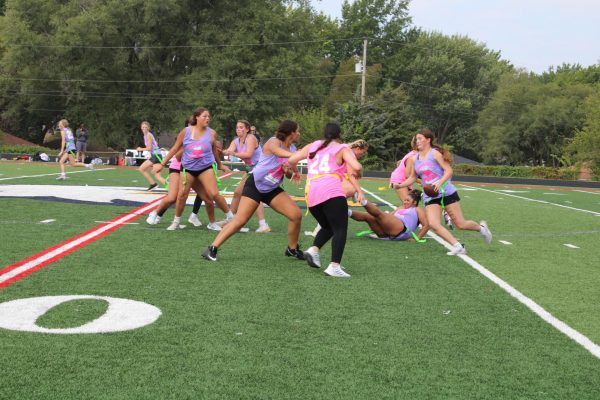The 100th Anniversary of the 19th Amendment and Ruth Bader Ginsburg
December 1, 2020
In 1920 women gained the right to vote. They had fought long, since they met in 1848 at the Seneca women’s convention. It was at this convention that they discussed the importance of women’s rights and wrote the Declaration of Sentiments. They quit their campaign to show support for the Civil War and started up again after the in the 1900’s. There were two groups dedicated to fighting for women’s rights: the National American Women’s Suffrage Association (NAWSA) and the National Woman’s Party (NWP). NAWSA was dedicated to pushing the states to grant the rights to the women, and the NWP wanted a national amendment.
The NWP was led by Alice Paul, they stood with signs outside the white house, there was a silent protest and were nicknamed the Silent Sentinels. Some of the women ended up going to prison for this silent protest though they were doing nothing wrong. In prison, they refused to eat in order to bring awareness to their cause and had to be force fed. They were nicknamed “Iron Jawed Angels”. They also continued protesting through World War 1.
After World War 1, a vote was called to install a new amendment to the Constitution, white women gained the vote in August 1920. Another famous American Suffragist was Ida B Wells, who was an American Journalist who wrote about subjects like women’s suffrage and pushed for minorities to gain the vote. It was after the 1920s that many minorities gained the vote. According to PBS, Native Americans gained Citizenship in 11924 but there were still restrictions on voting like literacy tests, and poll taxes. Asian American women gained the right to vote in 1952.Latinix women gained the right to vote in 1975 after an expansion. to the voting right amendment that prevented from discrimination against langure in minoritiy groups. African AMerican women gained the vote in the 1965 with the Voting Rights Act
In recent years, Ruth Bader Ginsburg helped many women gain freedoms and worked for equality. According to History.com, she was the second female justice and she worked on important cases such as the United States v. Virginia, a case where the court ruled that an all male state military school couldn’t refuse to admit women. She also worked on other gender equality cases. She served as a justice for 27 years. She passed away on September 18, 2020 from cancer. Ginsburg said “Fight for the things you care about, but do it in a way that will lead others to join you.” and inspires young women in the US. Ginsburg continues to have an impact on young women and feminists at North.
Bre Elman, Co-President of the Feminist Club, was unfamiliar with RBG until she watched On the Basis of Sex, about one of RBG’s first court cases on sexism. After that, Elman was inspired by her story and researched her decisions on the Supreme Court. Her views on the LBGTQIA community, women’s rights, undocumented peoples, disabled citizens, and voting rights has made her a role model for Elman’s life and influenced how she leads the feminist club. “Such a powerful and influential woman makes me want to be just like her and empower women in the same way.”
Amelia Kline, Co-President of the Feminist Club, sadly just recently learned about who RGB was. She wished she could have known more about her when she was younger because she thinks she would be braver than she is now. After learning about how she was persistent and wanted to be heard as a woman, it really inspired Kline and reassured her that the work she is doing in feminist club has worth and meaning. Ginsburg took every battle no matter where she was in life or what little resources she had, and that gives Kline hope. Because of her, Kline has learned to be optimistic and hopeful, but also how to fight and push through the struggle. Kline “wants to take what I have learned from RBG and the women like her and spread that empowerment to all girls. My goal is for them to know their worth and have hope in their future.”


